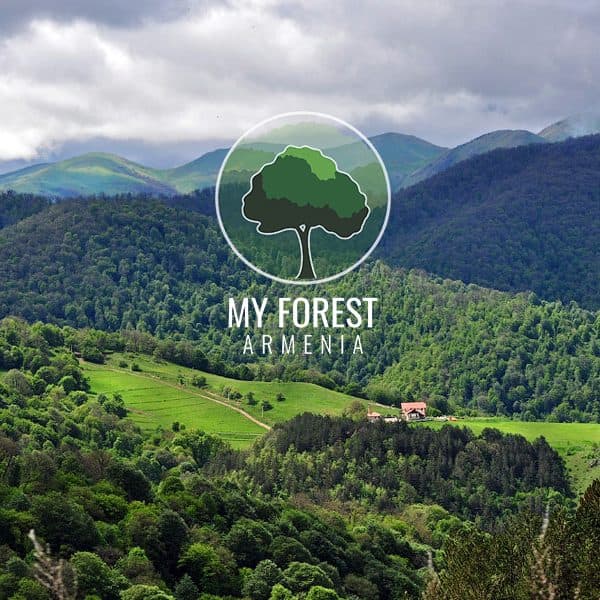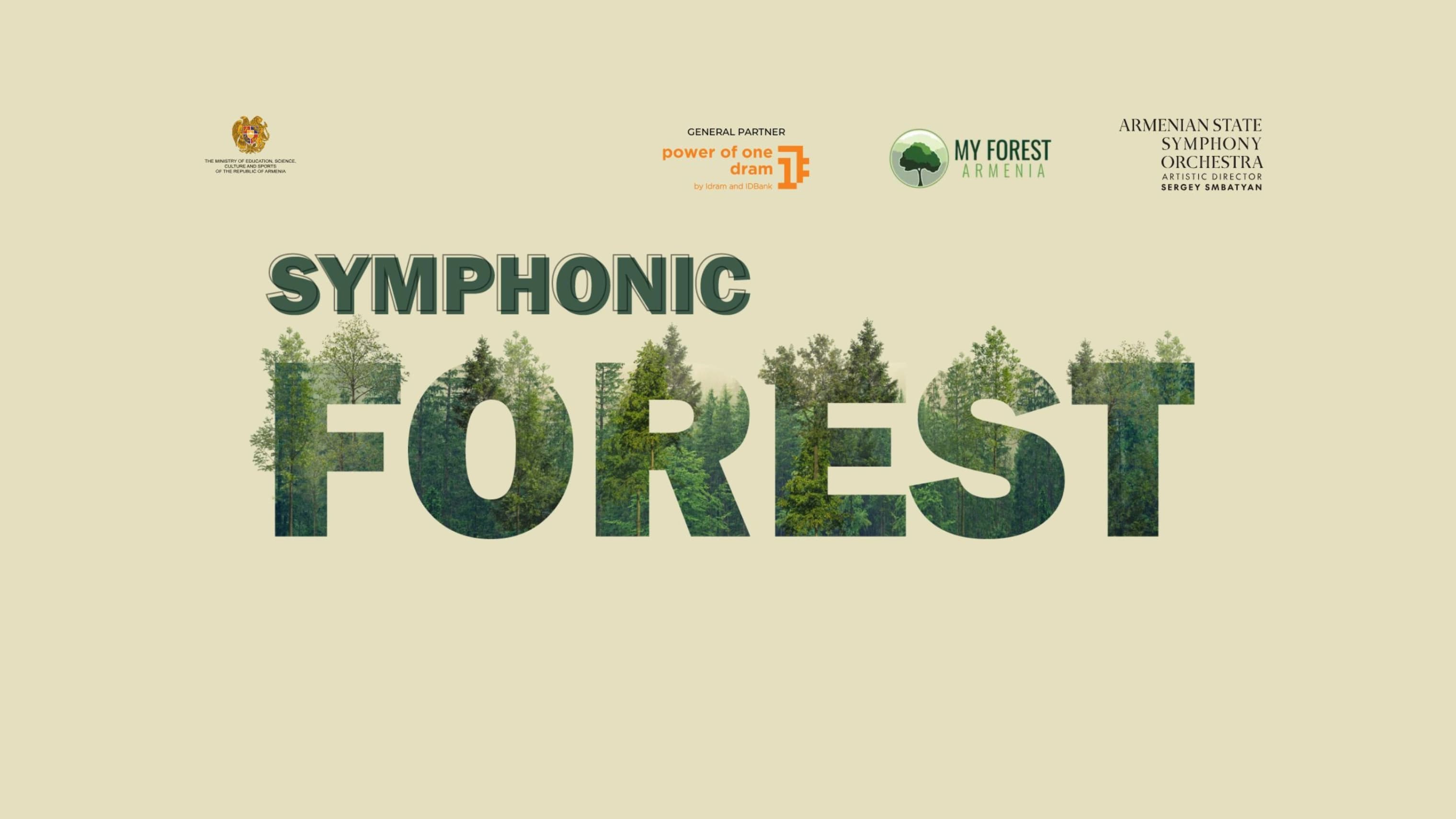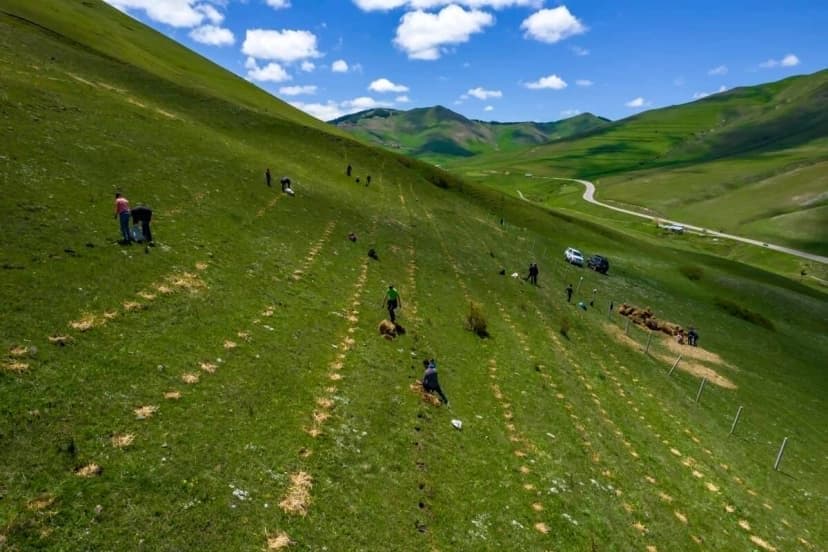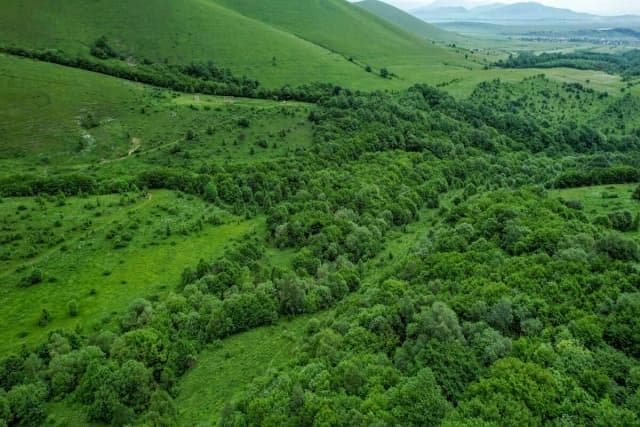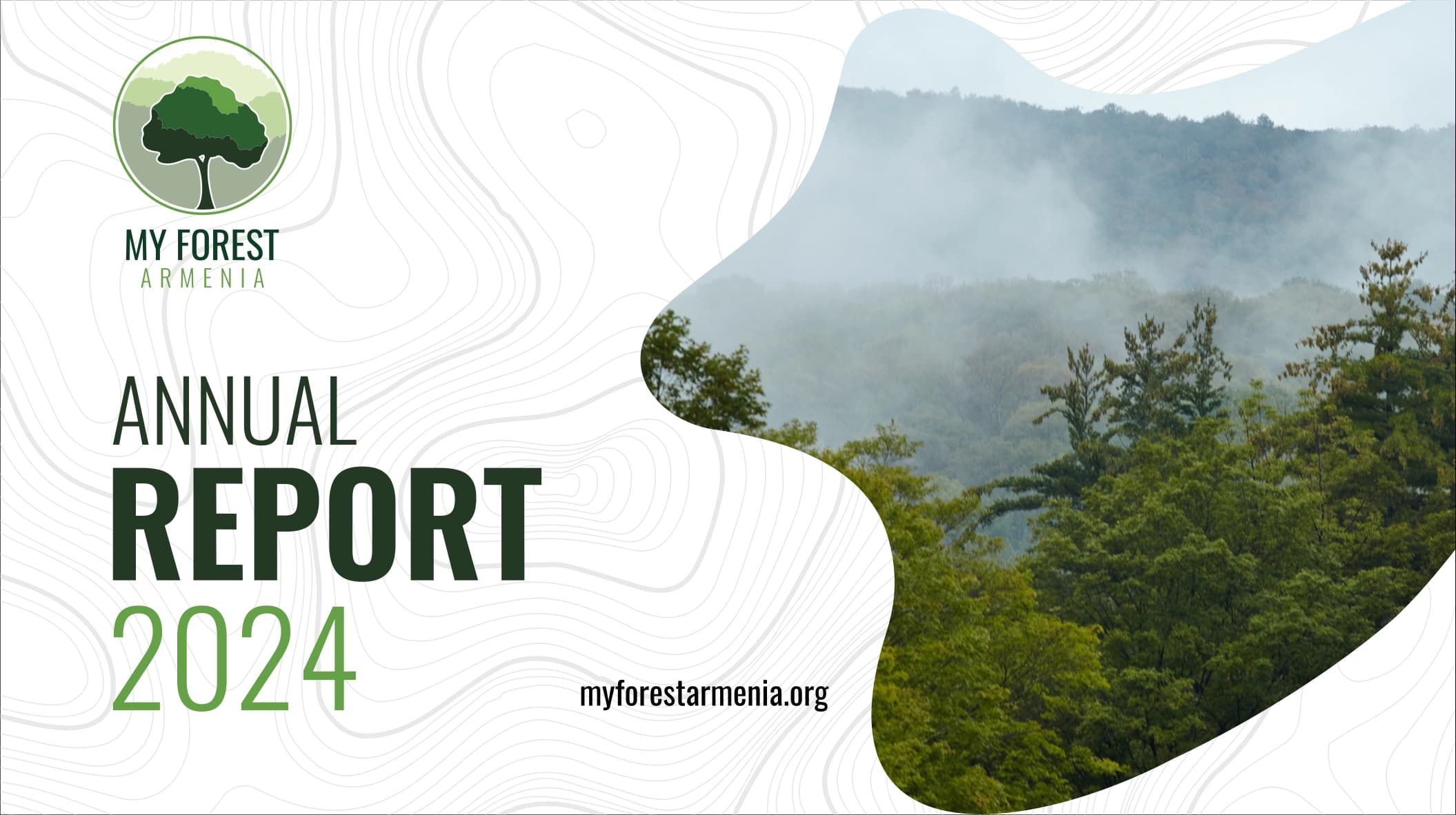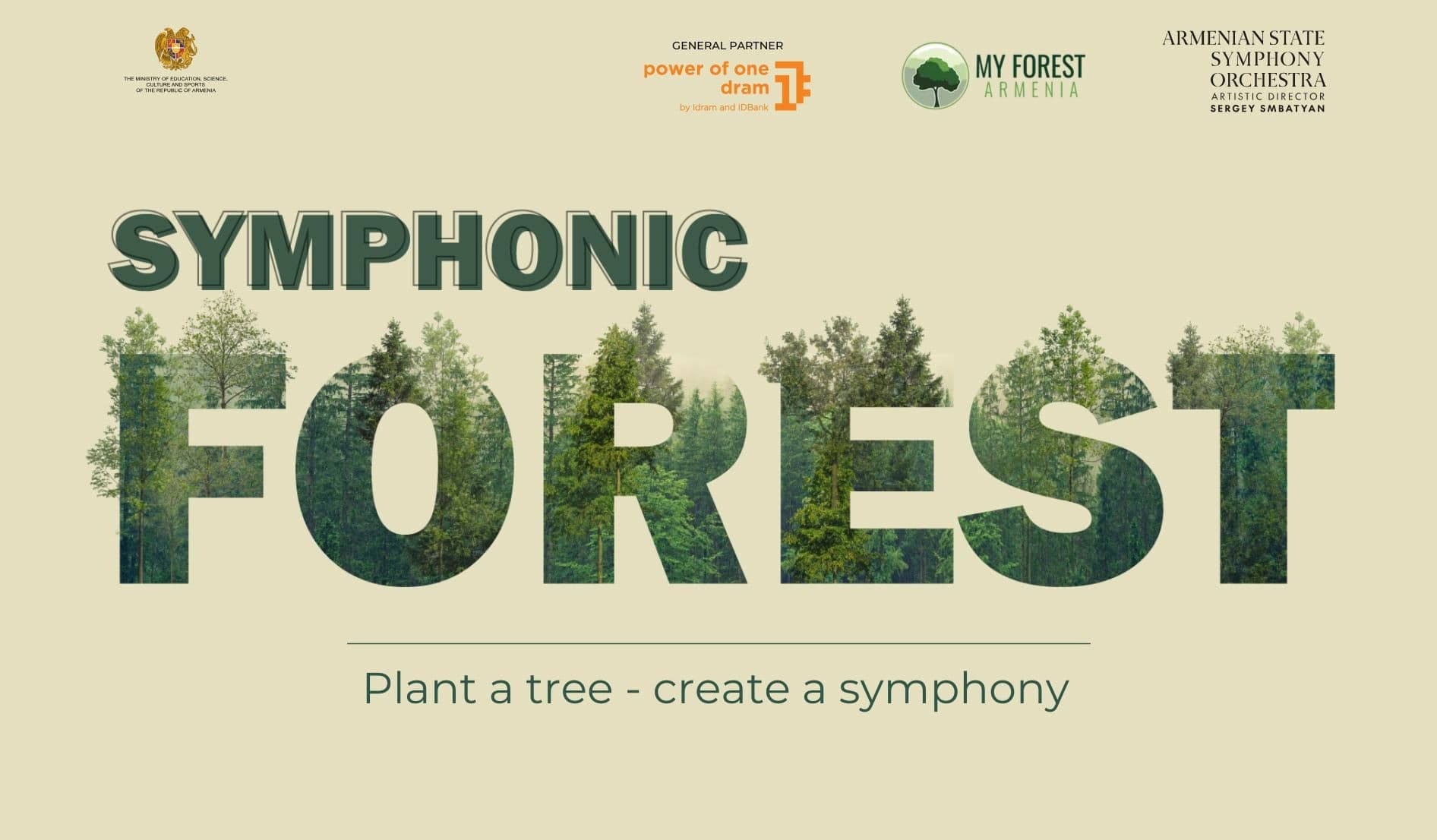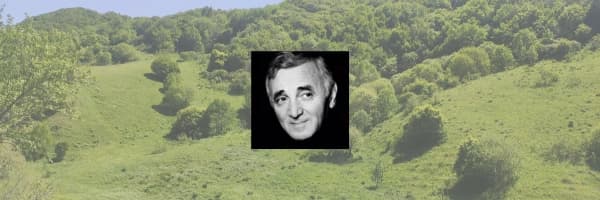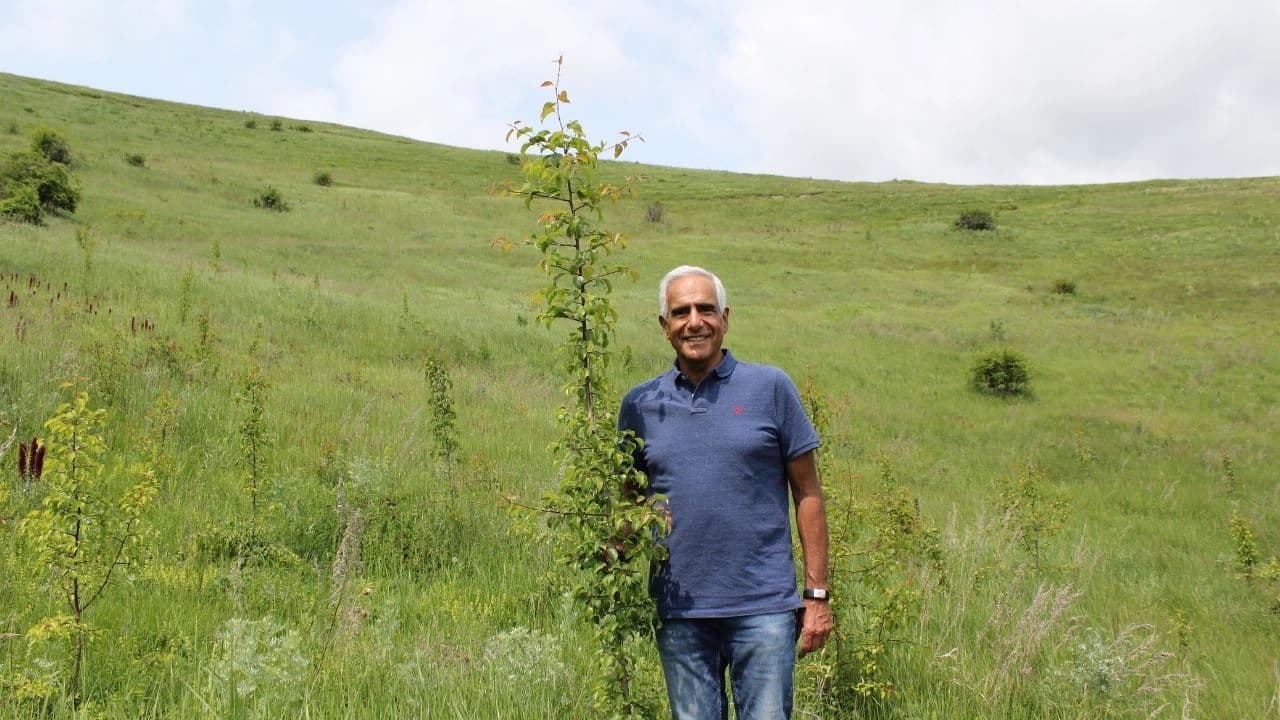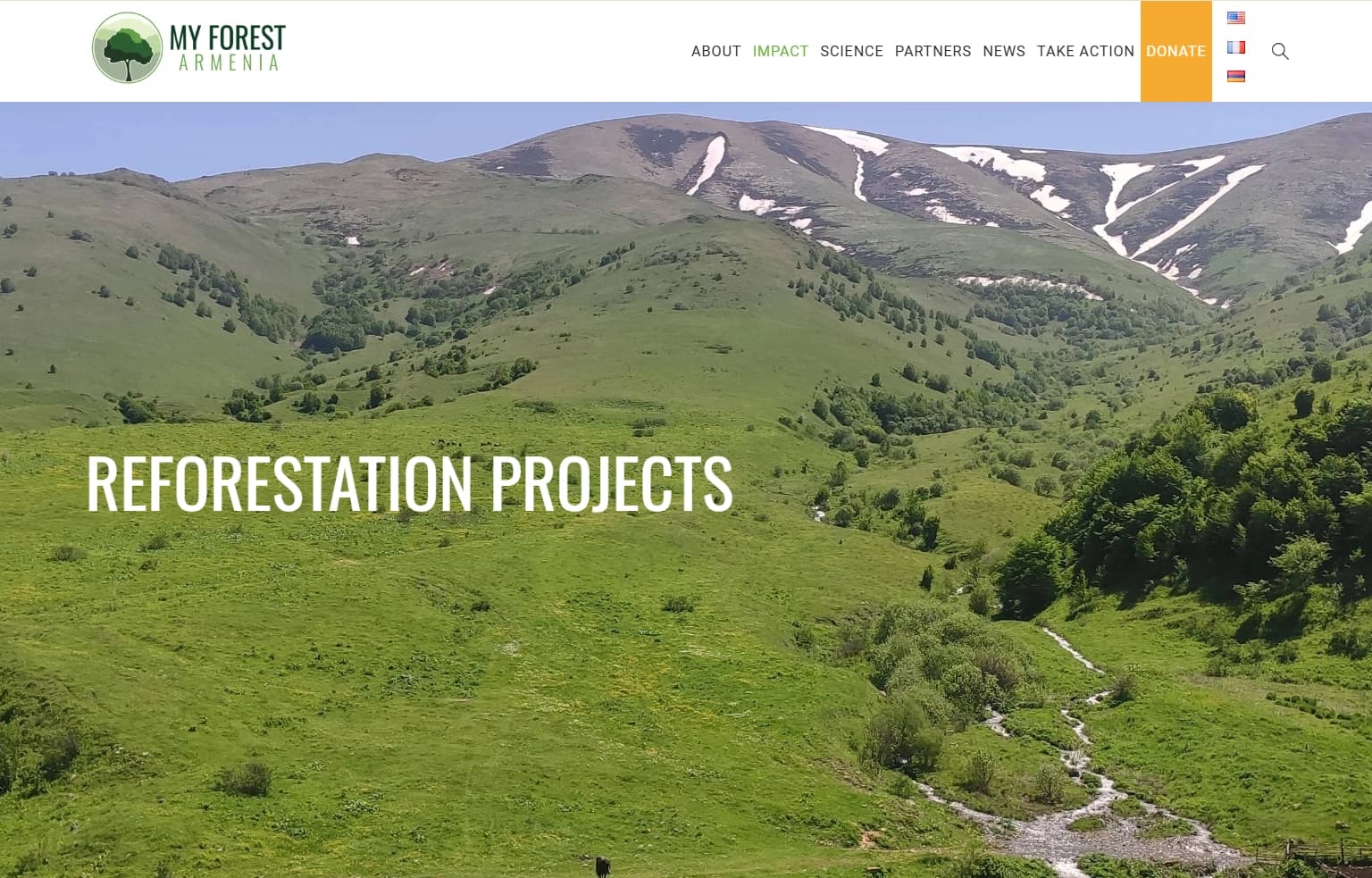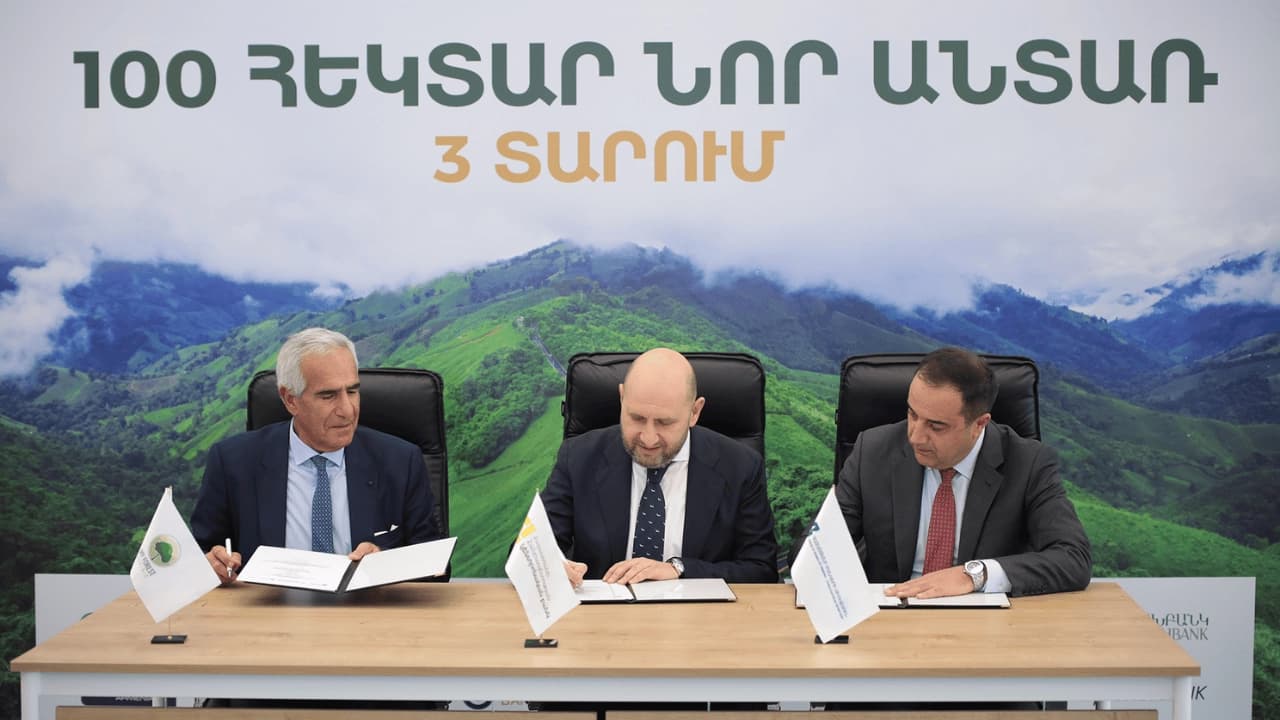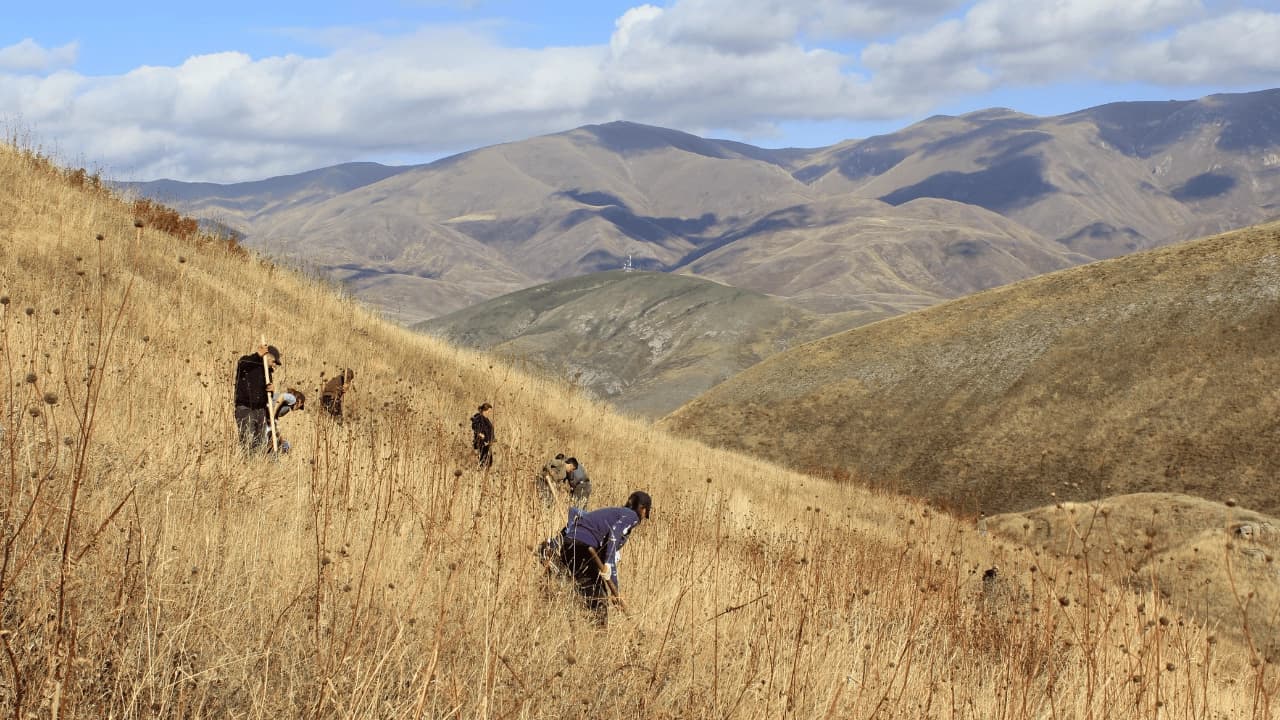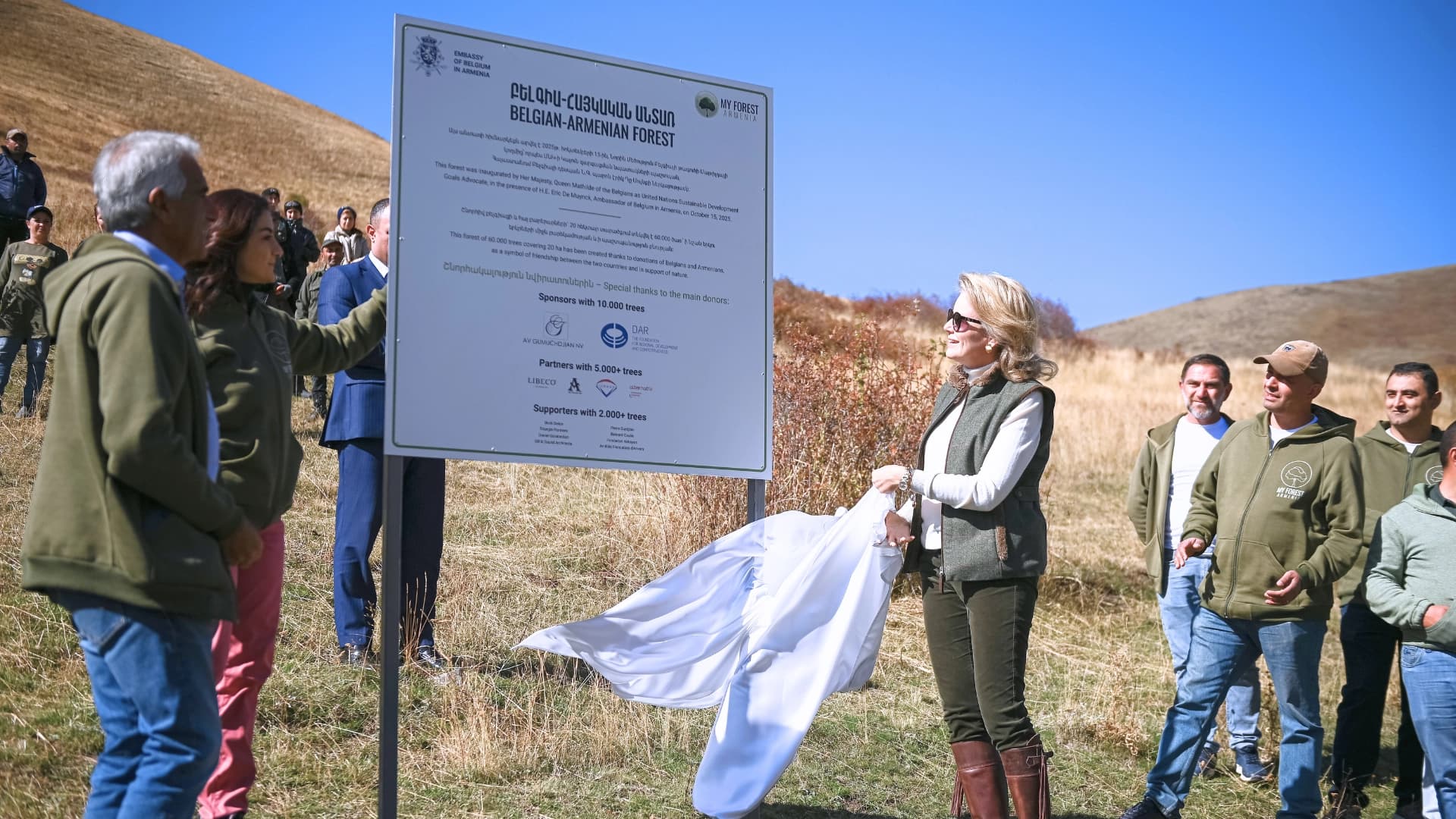 Why My Forest Armenia
Why My Forest ArmeniaAs scientists are denouncing with ever-stronger terms the irreparable damages that fossil fuel burning is causing on the earths climate, the world needs, collectively and individually, to act to reduce CO₂ emissions. If the goal is to have 0 emissions by 2050, it is urgent to start acting now to reduce global emissions. As certain CO₂ emissions, e.g., from air travel, have no clean alternative for the moment, planting trees and increasing forest coverage is one of the best ways to offset the carbon that is released in the atmosphere. Aside from carbon capture, forests are incredibly complex ecosystems and bring many added advantages: increase moisture in the air, reduce temperatures in the summer, reduce desertification, increase biodiversity, flora and fauna, beautify natural landscapes, and much more. One cannot stress enough how forests are vitally important for life on Earth. Finally, our work is done by local villagers living near the areas to be reforested. Our action has an important social aspect as well. By training and giving work to local people, we empower them and contribute to alleviate poverty. The villagers become custodians of the future forests. The forest itself, having a proportion of fruit bearing trees (walnuts, hazelnuts, wild pears, etc.) will provide them with a steady income. All told, as conscious and responsible individuals, we take responsibility for the impact of our acts while we are living on this planet. Just as we would not think of throwing and leaving garbage in another persons home, we, human beings passing by on this earth, have a moral duty to clean up the garbage we leave in the atmosphere and on earth as well.
Read MoreTrees are magical, they accomplish incredible functions.When millions of trees grow together, together they become a living organism, which has a multiplier effect, a system that is essential for sustaining life on our planet.
Around 80% of our water resources come from forests, it’s the trees’ root systems that retain the rainfall water and release it in the form of sources and rivers. Forests harbor most of Earth’s terrestrial biodiversity. They provide habitats for 80% of amphibians, 75% of birds, and 68% of mammal species.
How we treat forests has an ultimate effect on the life of all this living world. Forests stop soil erosion, increase humidity and lower temperature, prevent desertification, produce oxygen, and absorb CO₂, forests are the source of food and medicine. But also, creating new forests means creating employment for local populations and giving them the tools for a better future.
In short, forests are essential for life on this planet. Protecting them or restoring forest coverage is all about ensuring to leave the same living conditions we have known for the generations who will live after us on Earth.
Read More It's not about planting
It's not about plantingFew people realise the complexities of planting forests or reforestation.Planting is perhaps the easiest part of the whole process, what is important is to ensure that the young seedlings will survive the first few years and become grown-up trees.
For that, we plant the saplings in small trenches dug parallel with the slope so they collect rainwater naturally. Next is making sure that wild grass around the plants are removed so that they do not take water and nutrients necessary for the young saplings. That requires sending workers many times per year on the fields and ensure that all is going well and that the plants are healthy.
However that is not even the whole picture.
Forests are complex ecosystems. Our aim at My Forest is for quality and biodiversity. To ensure biodiversity, we plant many different local species of trees and also different species of shrubs as they attract insects and birds. Also one needs to avoid using invasive species and work only with endemic species. Invasive species grow easily and spread quickly however at the cost of suppressing local species, which in turn decreases biodiversity.
You will easily understand now that proper seed selection is the most crucial part of the whole process. We are planning to collect seeds from trees that show the most valuable qualities in order to encourage the growth of strong and diversified plants.
Needless to say, the challenges of global warming is also a factor we have to consider, that is why we value greatly our collaboration with the Agrarian University and biology experts around the world to ensure maximum success.
Read More Your Carbon Footprint
Your Carbon FootprintWant to know your carbon impact?
Use our quick and easy tool.
Check your carbon footprint now!
Calculate